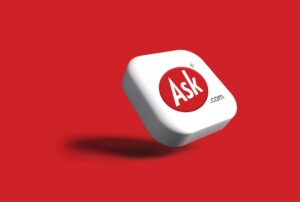Top 6 Funding Sources and Resources for Disabled Entrepreneurs

Explore the top 6 funding sources and resources designed to support disabled entrepreneurs in launching and growing their businesses.
1. Plan to Achieve Self-Support (PASS) Program
The Plan to Achieve Self-Support (PASS) is a federal initiative aimed at assisting disabled individuals in transitioning into entrepreneurship. PASS provides financial support for various business-related expenses, including:
- Supplies and Equipment: Purchase necessary tools and technology.
- Training Fees: Invest in skills development and business education.
- Transportation: Facilitate mobility and business-related travel.
- Adaptive Technologies: Implement solutions to enhance workplace accessibility.
Eligibility Criteria:
– Income and Resources: Net worth below $2,000 (or $3,000 for couples).
– Detailed Business Plan: Submission of a comprehensive plan outlining the business strategy and financial projections.
Applicants can apply online, ensuring they present a solid business plan to secure funding for self-employment.
2. Small Disadvantaged Business Program
The Small Disadvantaged Business Program offers federal contracts to businesses owned by disadvantaged individuals, including those with disabilities. Annually, approximately 10% of all federal contracts, equating to around $50 billion, are allocated under this program.
Eligibility Requirements:
– Ownership: At least 51% owned and controlled by one or more disadvantaged persons.
– Size Standards: Must qualify as a small business according to the Small Business Administration (SBA) guidelines.
To participate, businesses must register online and designate themselves as a “Small Disadvantaged Business,” increasing their chances of securing federal contracts.
3. Service-Disabled Veteran-Owned Small Business (SDVOSB) Program
The Service-Disabled Veteran-Owned Small Business (SDVOSB) Program targets disabled veterans looking to start or expand their businesses. This federal program allocates at least 3% of federal contracting dollars to SDVOSBs.
Qualification Criteria:
– Ownership: Business must be owned and controlled by at least one service-disabled veteran.
– Small Business Standards: Compliance with SBA’s size standards for small businesses.
SDVOSBs must self-certify their status to compete for contracts, providing a valuable opportunity for veterans to leverage their service experience into business success.
4. Accion Opportunity Fund
The Accion Opportunity Fund is a nonprofit community lender focused on providing small business loans to disadvantaged entrepreneurs. Loan amounts range from $5,000 to $250,000, suitable for:
- Workplace Accessibility: Making business locations more accessible.
- Assistive Technologies: Implementing or upgrading essential technologies.
- Adaptive Vehicles: Purchasing vehicles tailored to specific needs.
In addition to loans, Accion Opportunity Fund offers educational resources, coaching, and support networks to help disabled entrepreneurs thrive.
5. National Association for the Self-Employed (NASE)
The National Association for the Self-Employed (NASE) provides grants and opportunities tailored for disabled entrepreneurs. NASE supports self-employed individuals and micro-businesses with resources such as:
- Growth Grants: Up to $4,000 for marketing, advertising, hiring, and expansion.
- Benefits Access: Exclusive member benefits to compete with larger businesses.
Membership with NASE is required to apply for Growth Grants, offering a pathway to enhance business development and sustainability.
6. Assistive Technology Business Loans
Implementing assistive technology can significantly improve business operations for disabled entrepreneurs. Various funding options are available to support these initiatives:
- ADA Technical Assistance Program: Offers education and information on assistive technologies.
- Assistive Technology National Activities Program (ATAP): Provides access to devices and financing options.
- Device Loan Library: Enables businesses to borrow assistive technologies at low costs.
Additionally, numerous federal and state grants, along with Telecommunication Devices Access Programs (TDAPs), offer financial support for specific needs, varying by location. Nonprofits also play a crucial role in facilitating access to essential technologies for employees with disabilities.
Ready to take the next step in your entrepreneurial journey? Visit TOPY AI to connect with co-founders and streamline your business planning today.




